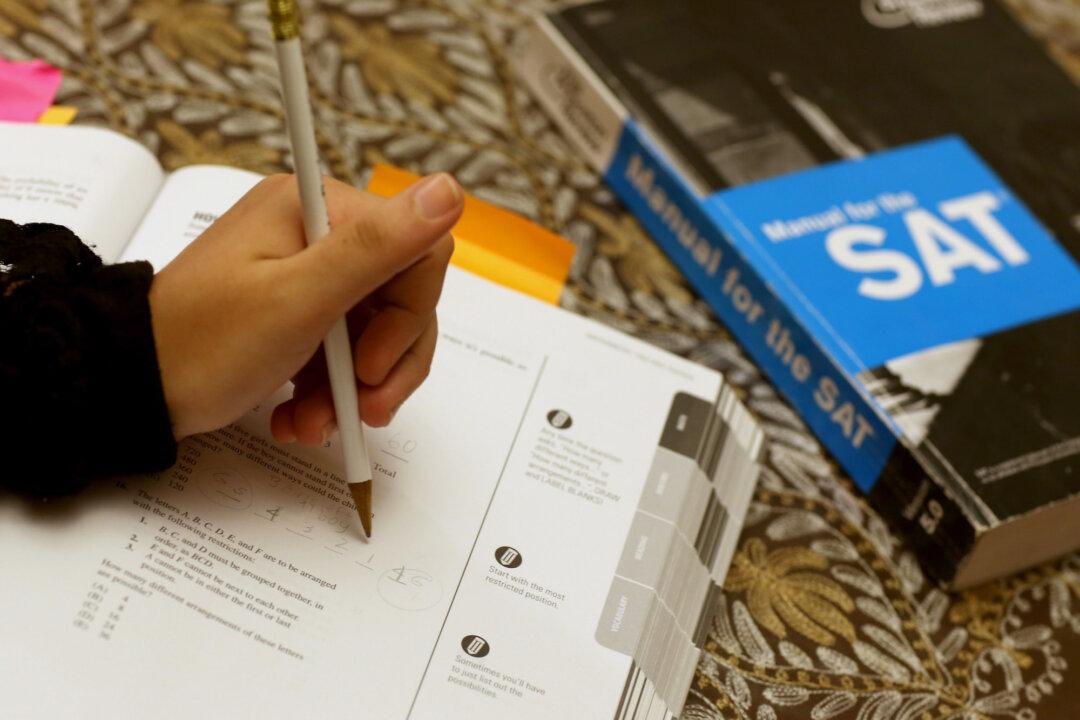The College Board, the New York City-based company that administers the SAT college admissions test, announced Tuesday that 178,600 of 402,000 students who signed up to take the test on Aug. 29 will not be able to do so because nearly half of test centers have closed due to the ongoing pandemic.
SAT and SAT subject tests are typically administered in local school buildings that are designated as test centers. The College Board said 46 percent of test centers have closed, while some of the remaining 54 percent have said they are only operating at a reduced capacity.





